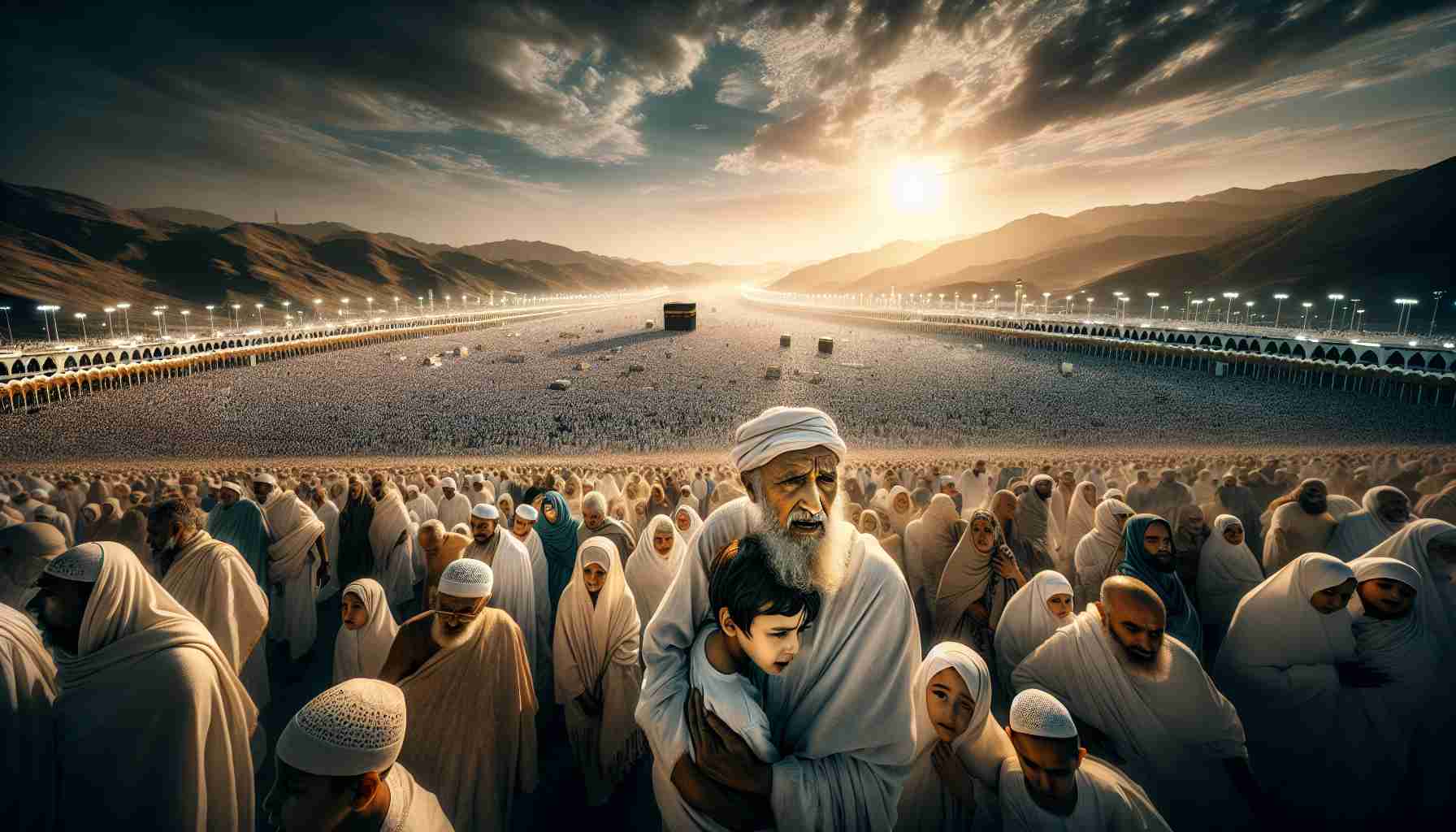

I was just a cloth merchant from Ta’if, not anyone special. My name won't be in any book of hadith, but I was there—on the plain of Arafat, year 10 after hijrah, when the Prophet Muhammad ﷺ gave his final sermon.
The desert was crowded with people from everywhere—Mecca, Medina, Persia, Abyssinia. The heat pressed down on us like a heavy blanket, yet no one moved away. We were all waiting. I had come with doubts in my heart. Islam had spread quickly, and though I had said the Shahadah—the declaration that there is no god but Allah and Muhammad is His Messenger—I still carried questions. Why did Allah make us so different? Could this message really unite us all, old enemies and strangers alike?
Then the Prophet ﷺ spoke.
I could not see him clearly from where I stood, but his voice reached us like clear water in a dry land. He said, “O people! Listen to me carefully, for I do not know if I will meet you again after this year.” My heart froze. Even the birds in the sky seemed to stop.
He reminded us that every Muslim is a brother to another. That Arab was not better than non-Arab, and that no white man was better than a black man—except through righteousness. The words shook something loose within me.
You see, in Ta’if we used to think we were better than others. We were proud of our wealth and our language. But here was the Messenger of Allah ﷺ telling us that skin color, bloodlines, all these things meant nothing to Allah.
He spoke of women’s rights—not as someone giving permission, but reminding men of their responsibility. “They are your partners and trusted companions,” he said. I thought of my wife and felt ashamed of how often I spoke sharply to her.
And then he left us with a message that echoed deep into my bones: “I leave behind me two things: the Qur’an and my Sunnah. If you follow them, you will never go astray.”
That was when my doubt began to melt.
We stood in silence. I wasn't the only one wiping tears. A man beside me, darker-skinned and from a land I did not know, looked at me and smiled. In that moment, he was more than a stranger—he was my brother.
I returned home changed. I no longer cared for the things that used to matter to me—titles, status, lineage. I cared whether I treated others fairly, whether I prayed honestly, whether I remembered that I would one day stand before Allah.
That sermon, those few words, became the compass of my life.
Because in the Farewell Sermon, I didn’t just hear the Prophet ﷺ say goodbye. I heard him remind us who we were meant to be.
Story Note: Inspired by the Farewell Sermon of the Prophet Muhammad ﷺ on the plain of Arafat, Year 10 AH, as recorded in Sahih Muslim and various authentic seerah sources.
I was just a cloth merchant from Ta’if, not anyone special. My name won't be in any book of hadith, but I was there—on the plain of Arafat, year 10 after hijrah, when the Prophet Muhammad ﷺ gave his final sermon.
The desert was crowded with people from everywhere—Mecca, Medina, Persia, Abyssinia. The heat pressed down on us like a heavy blanket, yet no one moved away. We were all waiting. I had come with doubts in my heart. Islam had spread quickly, and though I had said the Shahadah—the declaration that there is no god but Allah and Muhammad is His Messenger—I still carried questions. Why did Allah make us so different? Could this message really unite us all, old enemies and strangers alike?
Then the Prophet ﷺ spoke.
I could not see him clearly from where I stood, but his voice reached us like clear water in a dry land. He said, “O people! Listen to me carefully, for I do not know if I will meet you again after this year.” My heart froze. Even the birds in the sky seemed to stop.
He reminded us that every Muslim is a brother to another. That Arab was not better than non-Arab, and that no white man was better than a black man—except through righteousness. The words shook something loose within me.
You see, in Ta’if we used to think we were better than others. We were proud of our wealth and our language. But here was the Messenger of Allah ﷺ telling us that skin color, bloodlines, all these things meant nothing to Allah.
He spoke of women’s rights—not as someone giving permission, but reminding men of their responsibility. “They are your partners and trusted companions,” he said. I thought of my wife and felt ashamed of how often I spoke sharply to her.
And then he left us with a message that echoed deep into my bones: “I leave behind me two things: the Qur’an and my Sunnah. If you follow them, you will never go astray.”
That was when my doubt began to melt.
We stood in silence. I wasn't the only one wiping tears. A man beside me, darker-skinned and from a land I did not know, looked at me and smiled. In that moment, he was more than a stranger—he was my brother.
I returned home changed. I no longer cared for the things that used to matter to me—titles, status, lineage. I cared whether I treated others fairly, whether I prayed honestly, whether I remembered that I would one day stand before Allah.
That sermon, those few words, became the compass of my life.
Because in the Farewell Sermon, I didn’t just hear the Prophet ﷺ say goodbye. I heard him remind us who we were meant to be.
Story Note: Inspired by the Farewell Sermon of the Prophet Muhammad ﷺ on the plain of Arafat, Year 10 AH, as recorded in Sahih Muslim and various authentic seerah sources.